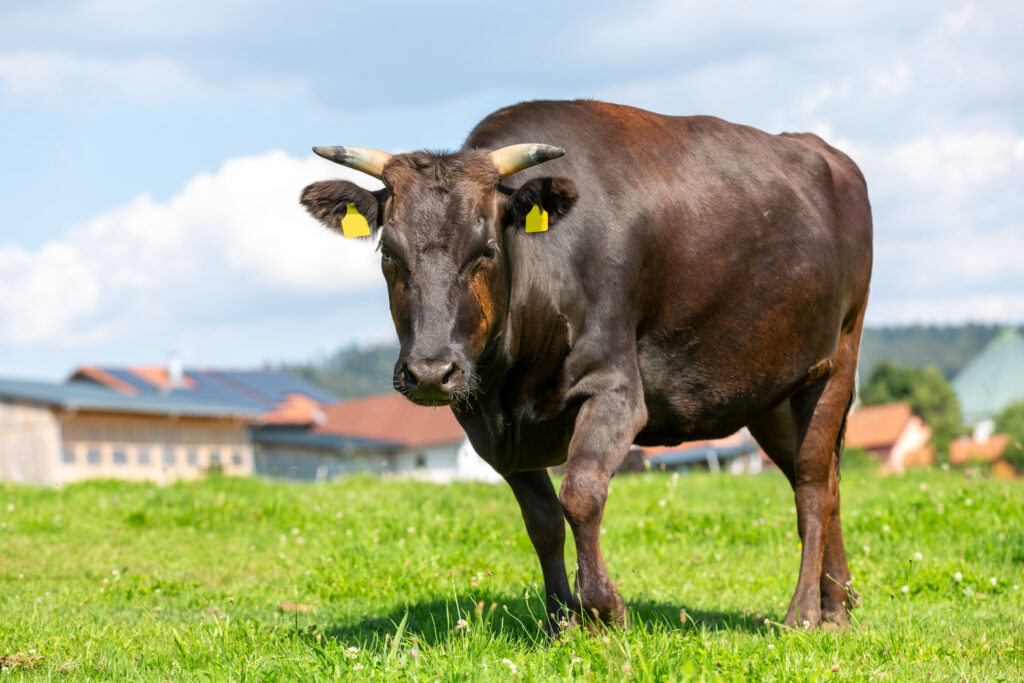Wagyu beef is said to be an ‘experience’ more than just a meal, but what do the cows themselves eat?
Wagyu cows have a varied diet, part of which does include various types of grass. They do tend to be put out to pasture, meaning they can eat fresh grass, but they also eat dried grass and hay, such as ryegrass, bermuda, alfalfa, and rice straw.

Read on to learn more about Wagyu cows and the special diet they’re often put on to ensure a greater meat yield.
What Does Your Food Eat?
For some, it doesn’t ever cross their mind what the beef they consume has eaten prior to its slaughter. It’s a given assumption that they’re put out to pasture, and that’s it.
While that’s true for many of the world’s cattle, there are some breeds that require a more specific diet to achieve higher quality results. Where a standard American cow will cost around two thousand dollars, these high-quality Wagyu cattle can cost up to thirty-thousand dollars a cow.
To put it simply, they’re the champagne of the beef-eating world, a cow that has been reared to perfection to produce exquisite meat. They’re put on a regulated and often strict diet that provides everything they need to grow as the farmer desires.
This diet consists of various aspects, such as grains, proteins, by-products, roughage, and minerals. There are certain stages at which these products are introduced to a Wagyu cow’s diet, and it’s all planned out according to decades of a successful production.
In the first year of a Wagyu cow’s life, they’re introduced to roughage, which includes grass and hay. This roughage – grass – aids digestion and encourages the growth of muscles.
Grass is also consumed to increase levels of certain vitamins, primarily vitamin A.
Wagyu farmers will also provide exorbitant amounts of soybean meal and okara for protein. The end goal is to make the cow fat, but also to encourage a unique distribution of fat throughout the meat.
The Mythical Aspect
There are many myths surrounding the production of Wagyu, circulated through decades of legend and rumor. The meat that comes from the cattle is quite simply the finest in the world, and people are always looking for explanations as to why.
The leading myth is that Wagyu cows are fed beer to keep them relaxed and to help fatten them up. While this hasn’t ever been comprehensively proven, it is a practice for some Wagyu farmers around the world.
When the end goal is to make your cows swollen and fat, the obvious choice for feed is going to be sweeter, even sugary products. There is tangible evidence of cows being fed chocolate or candy in many places around the world, but maybe not Japan.
For example, some Australian Wagyu cattle have been known to eat Cadbury’s chocolate. Reportedly, one ranch feeds their cattle a mix of expired chocolate, cookies, and candy – up to two kilograms of the feed per day.
While this isn’t Wagyu exported directly from Japan, the cows on the ranch are descendants of true, authentic Japanese cattle. They would have been originally imported some decades ago before Japan tightened the regulations on what could be exported from their country.
The Price Of Perfection
Wagyu beef has become such a sought-after commodity in the meat-eating world that Japan has tightened the exports on it. They don’t want other countries to revel in their cattle-rearing success, but they will export fresh cuts of the meat.
And they do, thousands of tons of meat, every year.
These days, Wagyu beef can cost as much as two hundred dollars per pound of meat. That price skyrockets when you purchase a professionally prepared steak, which will set you back by as much as four hundred dollars.
However, those that have consumed the meat agree that it’s one of the finest culinary experiences on the planet. The meat is intensely unique, with a marbling of fat that makes it tender and buttery in consistency.
It’s something that has to be enjoyed in as fine a setting as possible. There are culinary experts who would balk at the idea of cooking a Wagyu steak at home in a skillet – it must be professionally cooked.
If your mouth is watering at the idea of Wagyu, check out nearby steakhouses to see if they offer the meat. Although, you’ll need to check it’s authentic imported Japanese Wagyu and not an American-reared close copy.
